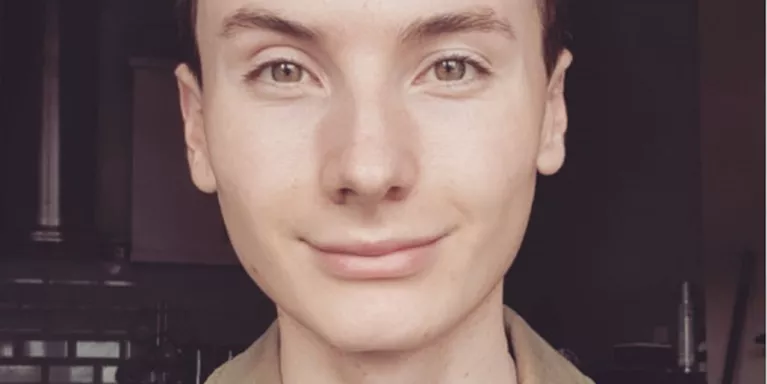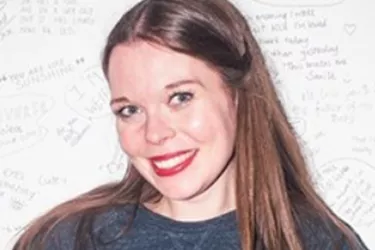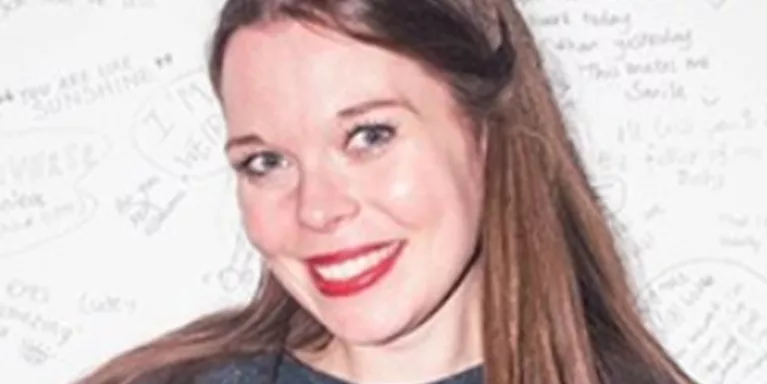How I started to beat my eating disorder
Nat dreaded the thought of group therapy, but in the end supporting others helped her to look after herself.
Nat is a 20 year old student studying Medical Science at the University of Leeds.
When I was 16 I found growing up difficult. I didn’t feel as though I fitted in and couldn’t figure out my identity, which led me to change the food I ate as a form of control. I began to eat ‘healthier’ prepare my own food and exercise more.
Pretty soon the adrenaline rush of feeling ‘healthier’ was replaced by fatigue, and most days I was relying on caffeine to get me through. I didn’t understand why because I was still eating, then my periods stopped and my heart was racing so fast it was painful most waking hours.
"I was losing my personality and felt completely disconnected from who I was. I believed the control I had around my diet was a crutch of support."
The way I spoke to myself became hostile, feeling constantly like a victim of bullying and unable to deal with any sort of spontaneity. Essentially I was losing my personality and felt completely disconnected from who I was. I believed the control I had around my diet was a crutch of support.
Eventually, my mum and I agreed that I’d lost too much weight and my mental health was severely struggling. By this time I was either in tears, anxious or emotionally numb. I felt the only person I could properly enjoy my time with was my best friend, and even she found me frustrating. I kept on top of my school work because I’m a perfectionist by nature, but found the motivation to continue getting less and less each day. Three weeks after visiting the doctor, I had an initial appointment with CAMHS (Children and Adolescent Mental Health Services). I believed I would just be offered some form of counselling to talk through my issues, but instead was met with a diagnosis of anorexia nervosa.
In some ways being diagnosed three months before my 18th birthday was a blessing, because it meant I was able to receive adolescent treatment quickly and avoid a long waiting list. However in the first appointment I was told I would not be able to return to college, I couldn’t attend my ballet classes, and my holidays for that summer were to be cancelled. This came as a huge shock to me and my family. A wave of emotions crashed over me. It was only days later when the anger and frustration subsided, I realised that I really did need help.
For the next few months I was forced to engage in treatment. I had weekly blood tests, electrocardiograms (tests to check your heart’s rhythm and electrical activity and weigh-ins to track my progress then was dropped into adult services as soon as I turned 18. I still completed my exams, returned to college and was physically getting better. But I wasn’t ready for recovery and the weight dropped lower than before within a few months of transitioning to adult services.
Reluctantly, my parents let me apply for university in the hope I’d have made significant progress before I left, and by that time I was maintaining weight mainly because I was worried what would happen to my exam results if I continued to waste away.
"Even on my A-level results day when I found out I got 3 A*s, I still felt a deep sense of dissatisfaction towards myself."
The eating disorder felt like a hostile identity in my head that just wouldn’t let me be. Even on my A-level results day when I found out I’d got 3 A*s, I still felt a deep sense of dissatisfaction towards myself. My eating disorder was never about the food, it was about wanting to feel in control.
It was only upon coming to university in Leeds and attending treatment there that I truly began recovery. Until then I believed this was something I would always have to live with.
"I learned through giving them advice how to be compassionate to myself and treat myself like a friend, and as the self-compassion increased, so did my weight."
I dreaded the thought of group therapy but the experience of hearing others talk about their problems really resonated with me. I learned through giving them advice how to be compassionate to myself and treat myself like a friend, and as the self-compassion increased, so did my weight.
I challenged many thoughts with the support of my team and finally feel like I can be free from the hostility that lived in me for so long. I had a fantastic counsellor who made me realise that life without this illness and with self-compassion can be so enjoyable.
There are still days when I feel like I’m drowning in eating disorder thoughts and anxiety. But now the probability of it being a bad day has reduced dramatically, and when I get one I can try to sit with it in the knowledge a good day will come back soon.
I never thought my life would be like it is now and I feel so privileged to have the help of my friends and family supporting me when I have tough days. My advice to anyone who thinks they’re struggling with an eating disorder is that you don’t have to live like this, and you deserve to have help.


Information and support
When you’re living with a mental health problem, or supporting someone who is, having access to the right information - about a condition, treatment options, or practical issues - is vital. Visit our information pages to find out more.
Share your story with others
Blogs and stories can show that people with mental health problems are cared about, understood and listened to. We can use it to challenge the status quo and change attitudes.

















